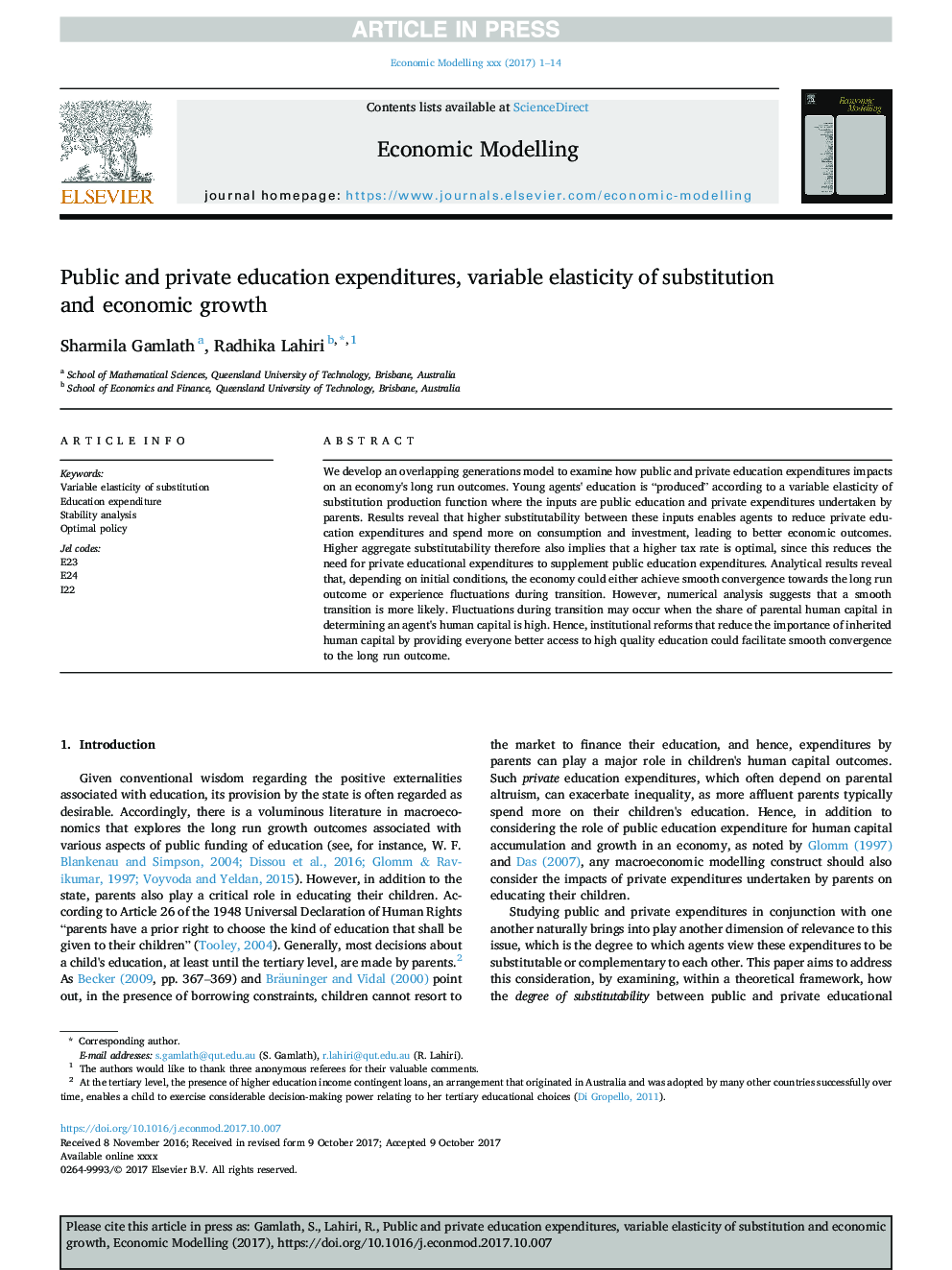| Article ID | Journal | Published Year | Pages | File Type |
|---|---|---|---|---|
| 7347106 | Economic Modelling | 2018 | 14 Pages |
Abstract
We develop an overlapping generations model to examine how public and private education expenditures impacts on an economy's long run outcomes. Young agents' education is “produced” according to a variable elasticity of substitution production function where the inputs are public education and private expenditures undertaken by parents. Results reveal that higher substitutability between these inputs enables agents to reduce private education expenditures and spend more on consumption and investment, leading to better economic outcomes. Higher aggregate substitutability therefore also implies that a higher tax rate is optimal, since this reduces the need for private educational expenditures to supplement public education expenditures. Analytical results reveal that, depending on initial conditions, the economy could either achieve smooth convergence towards the long run outcome or experience fluctuations during transition. However, numerical analysis suggests that a smooth transition is more likely. Fluctuations during transition may occur when the share of parental human capital in determining an agent's human capital is high. Hence, institutional reforms that reduce the importance of inherited human capital by providing everyone better access to high quality education could facilitate smooth convergence to the long run outcome.
Related Topics
Social Sciences and Humanities
Economics, Econometrics and Finance
Economics and Econometrics
Authors
Sharmila Gamlath, Radhika Lahiri,
